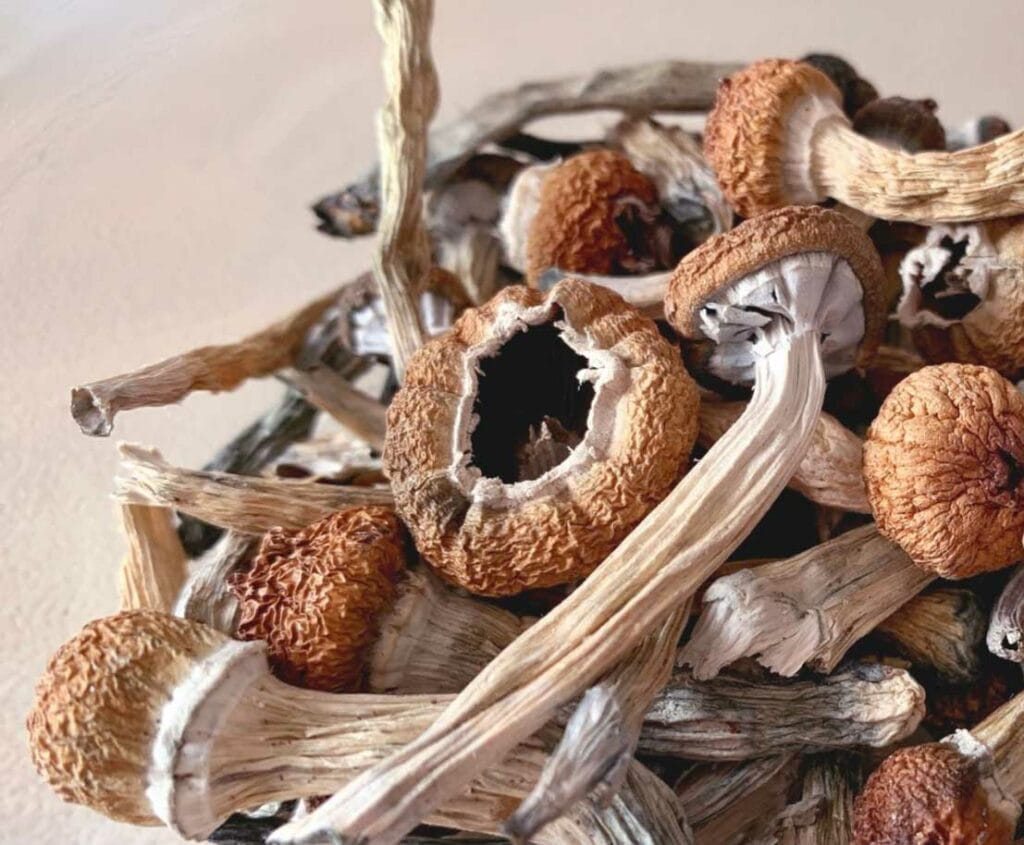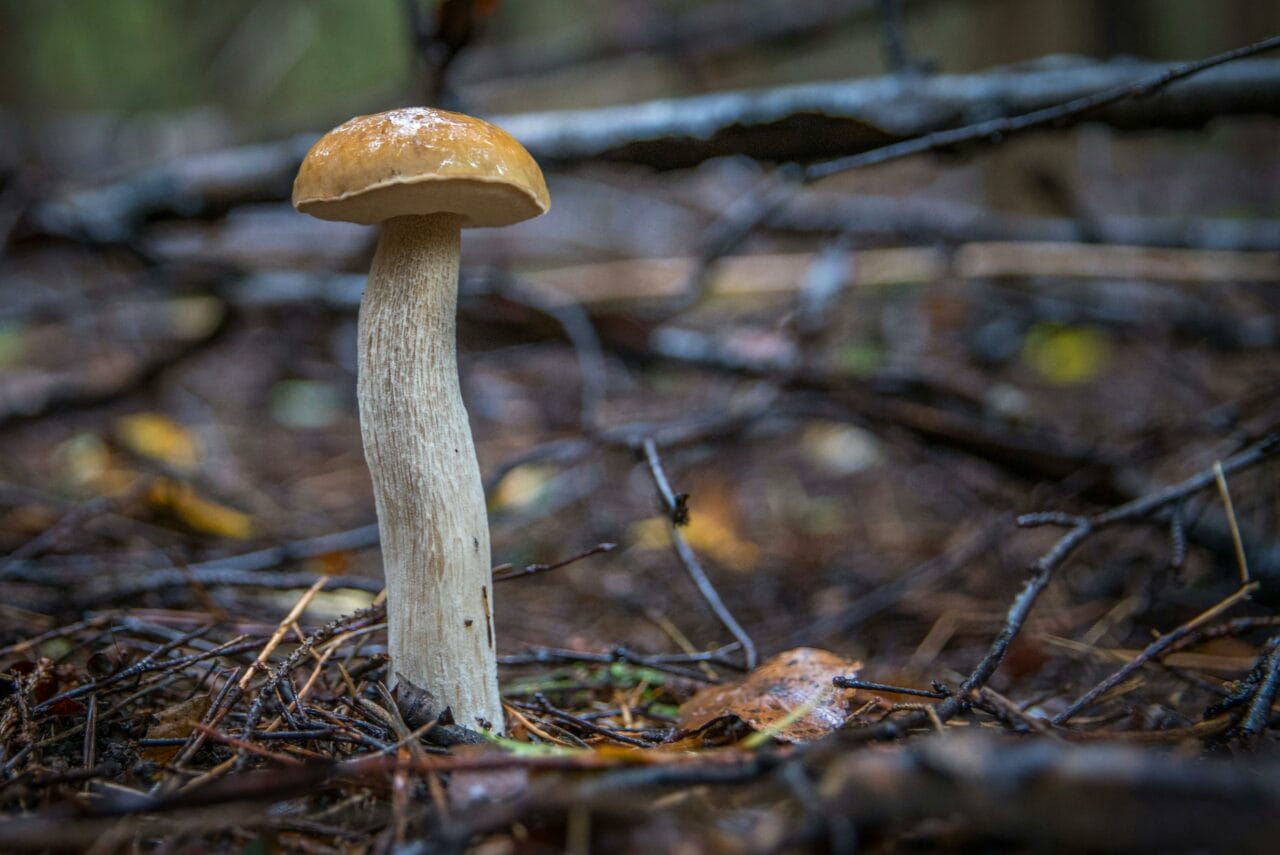As research continues to unfold the impact of psilocybin on the human brain, we are continuously uncovering remarkable findings. A 2023 study by Washington University disclosed the capability of psilocybin to reduce activity in the brain area responsible for memory and perception for an extended period of over a week. This prolonged disruption might contribute to its mood-enhancing effects.
Such a breakthrough paves a new way for individuals struggling with mental health, broadening the array of treatment options available to them. The increased flexibility of the brain, coupled with mood improvement, could offer longer-lasting relief than traditional medications. Additionally, it is cost-effective to purchase it via shrooms online.
[toc]
Key Takeaways:
- Desynchronization acts as a reset button, allowing individuals with depression to create healthier and more dynamic brain connections.
- It aids in addressing depression, anxiety, PTSD, and addiction by fostering neuroplasticity and modifying neural pathways.
- Depression sufferers have reported that a single dose can promote positivity, mood enhancement, and behavioural improvement.
Understanding Magic Mushrooms
These fungi are famous for their psychoactive properties, mainly psilocybin and psilocin, which can provoke altered states of consciousness. These modifications can lead to visual and auditory hallucinations, changes in perception, and intense emotional experiences.
For hundreds of years, they have been utilized in various cultural and spiritual practices and are commonly referred to as “shrooms,” “mushies,” or “hongos.”
The Psychedelic Compound
The most captivating feature of these fungi is their psychedelic compounds. When consumed, it is transformed into psilocin, which interacts with serotonin receptors (5-HT2A receptor). This interaction triggers alterations in brain connectivity and perception, resulting in the psychedelic effect and potential therapeutic advantages.
It disrupts standard connectivity, leading to enhanced interaction between previously separate brain areas, stimulating the formation of new expanding perspectives and enhancing cognitive flexibility. This disturbance, though causing a temporary shift in consciousness, allows for significant revelations that could act as treatment for disorders like depression, PTSD, and anxiety.
This substance has undergone thorough examination in a multitude of clinical trials and even received acknowledgment from Health Canada as a revolutionary treatment.
Recent Research on Neural Activity During and After Intake
The Washington University School of Medicine spearheaded a research project to investigate the immediate and long-term neurobiological and psychological impacts of psilocybin. The research aimed to comprehend the influence of these substances on synaptic connections and the durability of this effect.
Methodology
Healthy young adult subjects were given psilocybin and methylphenidate on separate days and underwent routine MRI scans (approximately 18 times) before, during, in between, and after each dosage.
Functional MRI (fMRI) was utilized to monitor synaptic connections and activity at different intervals. This allowed for a detailed examination of immediate and sustained brain network effects.
While in the scanner, subjects performed a simple auditory-visual matching task. This task was accurately performed during the drug sessions.
Primary Findings
- Immediate Alterations: A significant disruption in the connectivity across cortical and subcortical networks was observed, with the changes being over three times greater than those seen with methylphenidate.
- Desynchronization: A prominent reduction in network synchronicity, particularly in the “default mode network,” was noted. This network, consisting of interlinked regions like the thalamus, basal ganglia, cerebellum, and hippocampus, is typically more active during self-reflection and mind-wandering than while focusing on specific tasks.
- Task Impact: Despite the observed shifts in functional connectivity, participants’ performance during the auditory-visual matching task remained stable under the active substance. This implies that the alterations in functional connectivity are not likely due to changed neurovascular coupling.
- Long-Term Effects: A sustained reduction in connectivity between the anterior hippocampus and DMN was noticed for several weeks, but it reverted to normal after 6 months.
- Methylphenidate induces immediate changes that are less significant and less frequently observed in brain connectivity.
Professional Perspectives
Dr. Joshua Siegel, a psychiatrist based at the Washington University School of Medicine in St. Louis and the lead author of the study, suggests that psilocybin may promote an adaptable style of cognition, enhancing brain connectivity in a way that could potentially assist in treating depression. By fostering brain adaptability, it could facilitate long-lasting cognitive alterations. This desynchronization could potentially act as a reset mechanism for individuals suffering from mood disorders, encouraging healthier, more dynamic connectivity.
How Psilocybin Affects the Brain
The active compound modifies an individual’s perception of time and space, and changes their sense of connection to their environment. These subjective experiences, however, typically dissipate quickly.
It interacts with cells that respond to serotonin, a crucial chemical messenger. It briefly activates receptors in high-density areas, such as the medial frontal lobe, triggering long-lasting effects. This activation breaks down existing pathways and stimulates the formation of new connections.
Desynchronization was found to decrease when participants undertook a basic word-picture matching task, as the default mode network was not active during this task. This might explain why minimizing external stimuli—like wearing eyeshades—can enhance the engagement with the psychedelic experience.
Long-lasting Effects on Brain Disruption
While the immediate effects dissipate once the drug is metabolized, the aforementioned study found that disruptions in the connectivity between the DMN and the anterior hippocampus—a section associated with memory and emotion—can endure for several weeks.
This prolonged alteration might foster brain plasticity, potentially facilitating long-term changes in cognitive and emotional processing. These lasting experiences could amplify the therapeutic potential of the drug.
Dr. Petros Petridis, a psychiatrist at the NYU Langone Center for Psychedelic Medicine, remarks, “Psilocybin could present an opportunity for change, which a therapist can then guide the patient through.”
Potential Advantages for Mental Health Disorders
The effects might also influence emotional processing, leading to changes in the activity of brain regions involved in regulating emotions. For example, it can impact the amygdala, a region that processes emotions, which could result in changes in emotional reactions and mood.
These alterations in emotional responses could potentially
Let’s discuss some common mental health issues that Canadians often face.
- Depression: Use of certain drugs can promote positive attitudes, mood, and behaviour after two months of sessions, with follow-up results seen after 14 months of moderate to high doses.
- Anxiety Disorders: Altering perceptions of self and reality can potentially help to reduce anxiety, especially existential or end-of-life anxiety. This change can promote a deeper understanding and acceptance of personal fears.
- Post-Traumatic Stress Disorder (PTSD): Emotional reactions to traumatic memories can be swiftly and significantly reduced by promoting fear extinction. This process can potentially stimulate hippocampal neuroplasticity, thus enhancing the brain’s ability to form new connections and adapt.
- Obsessive-Compulsive Disorder (OCD): Interruption of rigid neural pathways and promotion of cognitive flexibility can potentially mitigate obsessive thoughts and compulsive actions.
- Substance Use Disorders: These disorders can potentially be combated by providing deep insights into the nature of addiction, causing a shift in perspective.
Opting for Magic Mushrooms to Help Mitigate Depression Symptoms
Are you on the lookout for mushroom products to relieve depression? Our selection of Psilocybe cubensis, known for its use in spiritual and religious rituals, offers reliable strains.
| Dried Magic Mushrooms | Description | Effects |
| Blue Meanies | These 4 cm wide mushrooms have a smooth surface and blue bruising, thus the name. | They can induce feelings of joy, hallucinations, happiness, and intense laughter. |
| Golden Teacher | Popular for its spiritual or shamanistic effects, it is a classic amongst the Psilocybe cubensis varieties. | It can cause bright colours, strong emotions, visual distortion, and a feeling of lightness or giddiness. |
| Albino Zilla | These are strong and thick, completely white mushrooms with some dark bruising. | They can stimulate creativity, a body buzz, sociability, euphoria, and positivity. |
| Atlantic Treasure Coast | These mushrooms naturally originate from the Southern Florida Gulf Coast and have pale caramel-coloured caps. | They can enhance mood and stimulate pleasure. |
In addition to dried psilocybin-infused mushrooms, magic mushrooms can also be consumed through edible shroom products, shroom tea, among other forms. Explore these convenient products available for purchase:
- Wonder – Birthday Cake Chocolate Bar
- Wonder – 3000mg Cherry Cola Gummies
- Bright Future – 3000mg Dark Chocolate & Sea Salt
Safely Alleviate Your Anxiety, Depression and PTSD with Online Shrooms
Recent findings have enhanced our comprehension of how the active compound in Psilocybe cubensis affects the brain. The disruption that lasts for a week can lead to a temporary change in consciousness. This psychedelic experience can provide profound insights and yield benefits for conditions such as depression, PTSD, and anxiety.
Looking for a reliable source to buy shrooms online in Canada? Shrooms Canada is committed to promoting mental health by providing high-quality magic mushrooms as a potential therapeutic tool for anxiety, depression, and PTSD. We strive to harness the unique properties of these fungi with our meticulously chosen range of online magic mushrooms.
Frequently Asked Questions
Does combining Psilocybe with antidepressants enhance their effects?
At present, there is insufficient evidence to validate a toxic interaction between antidepressants (SSRIs or others) and Psilocybes. The active compound also doesn’t increase the risk of serotonin syndrome when consumed with a single antidepressant. Most recent clinical trials involving shrooms request participants to reduce their SSRIs gradually or exclude them from the study.
Can Psilocybe shrooms be microdosed?
If you wish to avoid the full psychedelic effects of dried shrooms, microdosing is an option.
- Procurement and Preparation: Obtain shrooms and pulverize them into a fine powder.
- Dosage Decision: Approximately measure 0.1 to 0.3 grams (100-300 mg) of the dried mushrooms.
- Formulate a Dosing Schedule: Design a consistent routine, such as administering the dose every three days or adhering to a two-days-on, one-day-off pattern.
- Measure and Consume: Use a precision scale for accurate measurements and consider taking the dose on an empty stomach to enhance absorption.
- Monitor and Adjust: Keep track of your experiences and adjust the dosage or schedule based on your personal observations.
Is it safe to buy magic mushrooms online for therapeutic purposes?
Compared to acquiring from questionable sources, online purchasing is a safer option.
- Review thorough details about the products, including their source and quality. Reliable vendors offer lab test results or other guarantees to verify the genuineness and purity of their psychedelic mushrooms.
- Your payment and personal information are protected with website encryption that secures your confidential and financial details.
- Only purchase from credible vendors to prevent ingesting harmful varieties. Verify customer reviews and contact the dispensary to ensure their legitimacy.
Related Articles Worth Reading:





